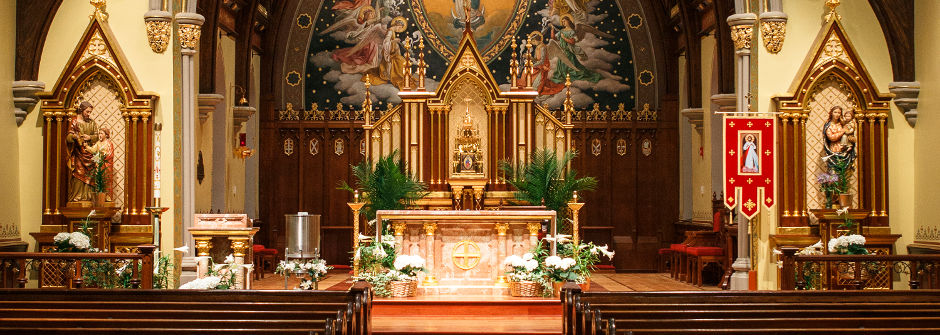
Excerpts from Seton Hall: A Catholic University
Introduction
Seton Hall is a Catholic, diocesan university, serving a predominantly Catholic student body but open to people of all faiths. We are Catholic in many ways: by the instruction we offer in our classrooms, by the creative faith and love of our members, by the public proclamation of our beliefs and by our grace-filled search for the truth. We include in our priorities a mission of service to the Catholic Church of Newark and our neighboring dioceses, working in a frank and confident collaboration with fellow Christians and others to promote the spiritual, human and social development of all people. We are aware of our own need for continuing moral formation, constant self-examination, improvement and correction.
Fundamental Identity and Sense of Purpose
As any university, Seton Hall strives to be an institutional embodiment of human critical
intelligence, a community of sound judgment, personal decency and intellectual integrity.
Here, as elsewhere, knowledge is sought and shared, the intellectual virtues are cultivated
and the worth of ideas is probed anew.
"Since the objective of a Catholic university is to assure in an institutional manner
a Christian presence in the university world confronting the great problems of society
and culture, every Catholic university, as Catholic, must have the following essential characteristics:
- A Christian inspiration not only of individuals but of the university community as such
- A continuing reflection in the light of the Catholic faith upon the growing treasury of human knowledge, to which it seeks to contribute by its own research
- Fidelity to the Christian message as it comes to us through the Church
- An institutional commitment to the service of the people of God and of the human family in their pilgrimage to the transcendent goal which gives meaning to life" (Ex corde Ecclesiae, 13).
The Choice and Advocacy of Values
Since its founding, Seton Hall has made, and continues to make, moral education a
priority of the first rank. The study of ethics, the quest for social and economic
justice, the debates concerning political theories, the analyses of the economic order,
the uses of the natural sciences, the conduct of business, the practice of the professions,
the creativity of the arts — all are moral efforts.
Freedom of enquiry and expression are, of course, at the heart of any university,
but without moral education that freedom runs the risk of becoming a hollow formula
for asserting no position at all. With freedom comes responsibility — the responsibility,
for instance, to render coherent moral judgment.
Community
"Community is at the heart of Christian education. From a Christian perspective, integral personal growth, even growth in grace and the spiritual life, is not possible without integral social life. To understand this is a high form of learning; to foster such understanding is a crucial task of education" (NCCB, Pastoral Letter on Catholic Education, 24).
"A Catholic university pursues its objectives through its formation of an authentic human community animated by the spirit of Christ. The source of its unity springs from a common dedication to the truth, a common vision of the dignity of the human person and, ultimately, the person and message of Christ which gives the institution its distinctive character"21).
Community has a healthy respect for diversity. This requires those human virtues of congeniality: civility, humor, balance, trust. There is no community, after all, if its members do not work to respect religious, racial and cultural diversity.
Service
It is imperative that a Catholic university acknowledge and express its position in a world that has become more interdependent. Where hunger, epidemic, and violations of human rights and human dignity are all too commonplace, Seton Hall must strive to bring a Christian perspective and Gospel values to these urgent and, in some ways, worsening world concerns. Since Seton Hall graduates are expected to translate their education into creating a better world, they must be offered opportunities to discover and experience that potential while they are here. The university community is responsible for creating the appropriate environment for meaningful service and personal commitment.
We at Seton Hall acknowledge our responsibility to strengthen human bonds and to do so most particularly by continuing the service that we have historically offered to the education of the poor and disadvantaged. We resolve to address the need to promote the dignity and advancement of disadvantaged groups.
